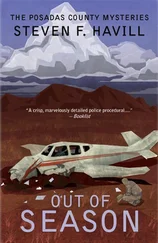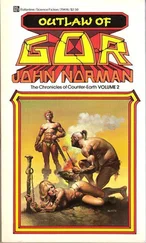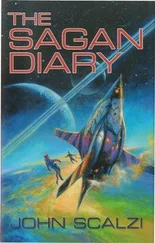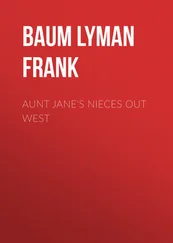This is what I call the intoxicated-by-the-freedom-of-not-being stage. My whole relationship with Jane was based on me being Steve, and I’d proven that I could successfully do that, and now I no longer wanted to. I wanted, not just to win the game, but to control the game, and because we were keeping score, and because Jane was challenging my control, I couldn’t stop. Or I didn’t stop. I’d made an implicit agreement to play a role with her, and now I wasn’t playing, and although Jane didn’t acknowledge it, she could see what was happening.
In Brueghel’s painting of Icarus, a plowman plows his field, a horse scratches its backside against a tree, and everything really does turn away quite leisurely from what is happening. Icarus, flying near the sun, had been warned by his father that his wings, made of wax, would melt. He was flying over a body of water, with fields and villages stretching out across the countryside, and Icarus must have been intoxicated by this sense of clarity and freedom. He was a young man, and he promised his father he would avoid the sun, but he couldn’t seem to do that. I don’t know if it was the heat or the light or the sense of freedom, but something drew him, and in Brueghel’s painting we can see what happened when it did, a boy falling out of the sky.
And so I won the game.
And yes, I had a choice. I could have apologized, and offered to play another game. I could have tried to make that game different. I could have eased up and had a nice reciprocal Ping-Pong conversation. I could have said, I’ll be Steve Martin, and volleyed with her in that back-and-forth way that, if it goes on long enough, creates a kind of habit in which the two individual players, because the ball is distracting them from who they are, forget who they are and merge into the other player, into one player really, one mind, playing an intimate and enjoyable game with itself.
But I didn’t want to do that.
And since I didn’t, and since she didn’t want to play the game we were playing, I drove her home. We didn’t speak the whole way back to her house. We didn’t have to. We knew what goodbye felt like, and this was it, and after I dropped her off I went back to the Metropole. I bought a pack of peanuts from the vending machine by the door, then watched the crowd around the television set watching Seven Brides for Seven Brothers . I watched for a while and then I bought a second pack of peanuts, went up to my room, sat on my bed, my back against the wall, and ate my dinner.
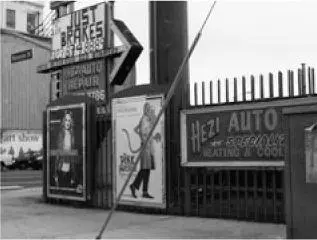
Near the end of Sunset Boulevard , William Holden, playing the part of Joe Gillis, finally tells Gloria Swanson that he’s leaving her. He’s been working with the script girl on his screenplay project, which has become their screenplay project, and although they call the project Untitled Love Story , she’s the fiancée of his best friend. So he says goodbye to her and drives up to the old mansion to finally tell Gloria Swanson the truth. She’s waiting for him, and in my mind she’s either dressed for a New Year’s Eve ball, or else she’s wearing a rejuvenating facial mask with only her eyes and her mouth left to communicate. I think Joe Gillis is wearing a tux, and anyway, they quarrel. That’s a polite way of putting it because she’s holding a gun, and she threatens to kill herself, and she’s done this before so he knows, or thinks he knows, that the only way to deal with her and end their arrangement is to ignore her. And so he walks away. Which for her is unacceptable. She calls out, “Joe, Joe.” She says, “I’ll kill myself. I’ll do it this time,” but he walks away, out of the house, and when he gets near the swimming pool, that’s when she fires the gun, and he falls, face-first, into the water.
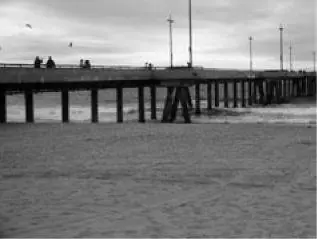
I had gone to a coffee shop in Venice, and I was sitting there with my paper cup of coffee, sipping through the hole in the lid, looking at the woman at the table in front of me. I was thinking about Joni Mitchell because this woman was wearing a beret. She had long blond hair, and I was looking at her and also looking out the window. I was thinking about how Venice was made to look like Mexico during the filming of the movie Touch of Evil . The street was lined with colonnades, made of adobe or adobe-like material, very Old World, or Third World, and as I sipped my coffee, looking out at the cars and the colonnades, I noticed the woman walk out of the coffee shop. She had a posture not unlike Jane’s, and I followed her. I walked, with my white paper cup, out to the street and down the street, following the hair of the woman who I knew wasn’t Jane, but I followed her down toward the water. She sat on an empty cement bench along the curving path, and as I walked past her I turned my head to look out to the curving line of the horizon, not thinking about Jane or the woman or anything.
That’s not completely true because, having said no to Jane and no to Steve and no even to myself, it didn’t mean I wasn’t having thoughts. Although I didn’t feel like who I used to be, I must have been something. Unlike a Buddhist monk, some remnant of something was still inside my brain, the neurons still firing away, and I tried to control the firing by thinking, not about Jane, but about the waves on the shore and the sun on my neck. I walked up the path for a while, and when I turned around and walked back to the bench, the woman was gone. I didn’t sit, but I stood there, looking at the bench she’d been sitting on. The back of the bench was covered with layers of advertisements, and I was mentally trying to strip away the layers, thinking that if I did this, I would eventually see what the bench really was. And if the bench was nothing but advertisement, then the bench wouldn’t exist anymore.
That’s what I was thinking when I heard a man running down the beach telling people to check something out. The man wasn’t the Houdini I’d seen before. He was Houdini’s P.R. person, and as he ran along the boardwalk, he stopped by the bench, pointed to the end of the jetty and said to me, “Check out the New Houdini.”
“I’ve seen Houdini,” I told him.
“Not this one,” he said. “This is the New Houdini.”
When I walked out to the end of the jetty, I wasn’t surprised to see the same Houdini, in the same wetsuit, holding the same cinderblock, telling a crowd of teenagers to “check it out.” He was asking for someone to verify the security of his bonds, and I turned to the person next to me. “I’ve seen this guy before,” I said, and yes, he looked like the same man, but what if, beneath his skin, he’d changed? What if he wasn’t who I thought he was? He was directing everyone’s attention to the cinderblock and the chains around the cinderblock, and then he said to me directly, “Check it out.”
Because of my new hairstyle I don’t think he remembered me, or if he did, he made no acknowledgment. He stood by the railing with his cinderblock and his handcuffs, and no one else seemed to be moving so I said, “I think I’ve seen you before.” But he wasn’t listening. He was trying to build an audience. People were filling up the jetty and he was working the crowd, holding the cinderblock out to me, for me to inspect it, telling me, “Check it out, check it out.”
The sky was overcast and the light seemed to be slowing things down, or else I was slowing down. I stared at the porous material of the cinderblock for a long time before I told him, “It looks fine.”
Читать дальше






